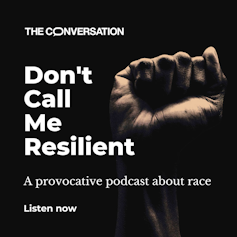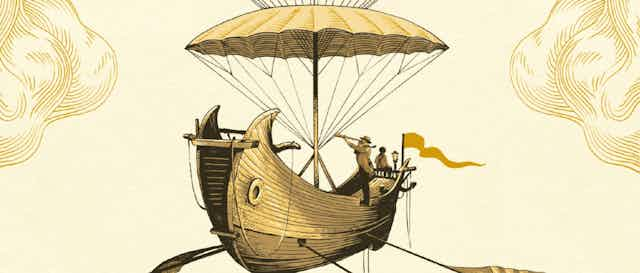Stories are a powerful tool to resist oppressive situations. They give writers from marginalized communities a way to imagine alternate realities — and to critique the one we live in.
In this episode of Don’t Call Me Resilient, two storytellers who offer up wondrous “otherworlds” for Indigenous and Black people speak about the crucial role storytelling has played in their lives.
Daniel Heath Justice is a Colorado-born member of the Cherokee Nation and Canada Research Chair and professor in Indigenous literature and expressive culture at the University of British Columbia. He is the author of Why Indigenous Literatures Matter, as well as the epic trilogy, The Way of Thorn and Thunder: The Kynship Chronicles.

Also joining the conversation is Selwyn Seyfu Hinds, an L.A.-based screenwriter and producer. He has been writing comic books and screenplays for a decade, including episodes for Jordan Peele’s The Twilight Zone. Hinds is currently adapting the award-winning fantasy novel Washington Black by Esi Edugyan, which won the Scotiabank Giller Prize in 2018.
A full transcript of the episode is available here.
Each week we highlight articles related to the topics we discuss in the episode. This week, Lina Nasr El Hag Ali from OCAD University writes about Afrofuturism and the power of political imagination.

You can listen or subscribe on Apple Podcasts, Google Podcasts, Spotify or wherever you listen to your favourite podcasts. We’d love to hear from you, including any ideas for future episodes. Join The Conversation on Twitter, Facebook and Instagram and use #DontCallMeResilient.
Don’t Call Me Resilient is a production of The Conversation Canada. This podcast was produced with a grant for Journalism Innovation from the Social Sciences and Humanities Research Council of Canada. The series is produced and hosted by Vinita Srivastava. Our producer is Susana Ferreira. Our associate producer is Ibrahim Daair. Reza Dahya is our sound producer. Our consulting producer is Jennifer Moroz. Lisa Varano is our audience development editor and Scott White is the CEO of The Conversation Canada. Zaki Ibrahim wrote and performed the music we use on the pod. The track is called Something in the Water.

